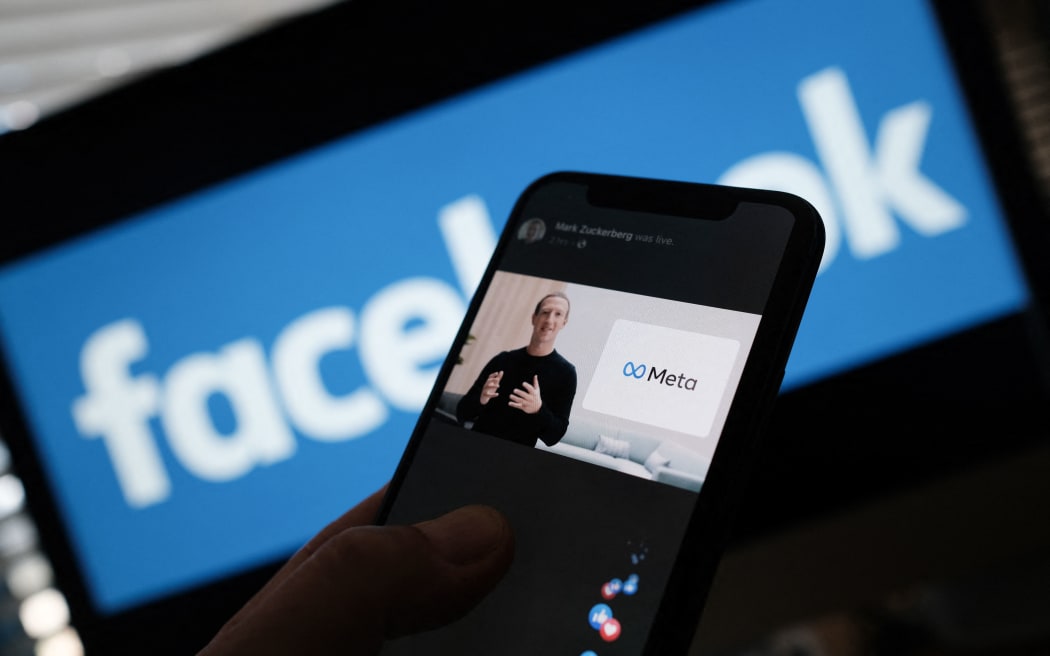
Up to 300 people at Newshub are set to lose their jobs. Photo: RNZ/Marika Khabazi
Officials warned the government it may face requests to bailout media companies if it failed to progress a law forcing digital platforms to pay local media for using their content.
The warning, from officials at the Ministry for Culture and Heritage, came in November last year, months before Newshub collapsed.
The advice to Media and Communications Minister Melissa Lee said any further delay to a law change forcing Google and Facebook to pay local media companies for using their news content could lead to job losses.
"The industry considers the [Fair Digital News Bargaining] bill is the best mechanism to support a free and independent news media that is not reliant on government funding," officials told Lee.
"The government may come under pressure from news media entities to consider other more interventionist and costly options for supporting the news media industry, such as bailouts."
The briefings obtained by RNZ made it clear Lee was on notice about media job losses, months before Warner Bros Discovery said last week it would close down Newshub in June with the loss of about 300 jobs.
It will be at least May before the bill progresses any further, however, as Lee told RNZ she would wait for a report from the select committee considering it before going any further.
Bargaining bill worth tens of millions to media
The digital news bargaining bill, introduced by Labour in August 2023, aims to allow local news publishers to negotiate on "more equal terms" with digital platforms such as Google and Facebook.
The bill creates a bargaining and arbitration process, penalties for not complying, and exemptions for digital platforms who can show they are making a "fair contribution" to the production of local news content.
"The bill is designed to reduce reliance on government funding by providing pathways for local news media to enter commercial deals with digital platforms that are using their content to drive engagement, and make money, but not paying the original content makers," officials told Lee.
The documents said local media would benefit by between $30 million and $50 million each year under the law and that this revenue could triple over time.
"International examples show that New Zealand may see higher returns - approximately $134 million - as online news markets develop and news companies are encouraged to enter the market."
While politicians debate the digital news bargaining law, Google has done its own deals with 20 New Zealand media outlets under its Google News Showcase programme, launched in August 2022.
Lee was told that without these deals some of those media companies would have gone bust.
"News media stakeholders have informed officials that without a News Showcase deal there is a high likelihood they would shut down."
But officials told their minister that Google may pull out of these deals if the digital news bargaining law does not go through.
"There is a risk that Google will pull out of its current commercial deals or will not renew its commercial partnerships in the future. This would leave the industry without a viable pathway to transition to online operating models."
The documents said most media companies did not support government subsidies and that schemes such as the $55 million Public Interest Journalism Fund was "not financially sustainable" and could "compromise the perception of a free and independent news media industry".
Officials told Lee that the US, UK, Canada, Australia, the EU and France had, or were implementing, bargaining legislation, requiring digital platforms to compensate media.
The Australian bargaining code was providing about $215 million each year to local news media. In Canada, Google had agreed to contribute $119 million a year and in France $135 million, the documents state.

Meta, which owns Facebook, blocked news stories on its platform in Australia over similar legislation Photo: AFP
Meta's threat to block news content
But multinational tech giants are opposed to New Zealand introducing digital bargaining legislation.
"Large digital platforms who occupy dominant positions in the online marketplace such as Google and Meta (Facebook's parent company) do not support the bill," officials told the minister.
"Meta has informed officials that if the government passes the bill, Meta will block New Zealand news content, like it has in Canada."
Officials told Lee that they were confident that other digital platforms would fill the gap left by Facebook and that Microsoft assured them it would remain in the online news market place.
"Alternatively, consumers can access news directly from a media company's website, ensuring revenue is directed to the companies who pay to make the news."

Media and Communications Minister Melissa Lee. Photo: RNZ / Angus Dreaver
The documents show that Lee met with Google executives on 12 December.
In notes prepping Lee for that meeting officials said Google made "significant revenue" from New Zealand.
"In 2022 Google sent $870 million to its parent company, up from $698 million in 2021. Officials estimate that Google generated approximately $1.18 billion from search engine advertising in New Zealand in 2022."
It outlined to the minister how the Google business model worked.
"Google monetises audience engagement using online advertisements or on-selling personal data to third parties to generate revenue. Google uses content to drive audiences to its platforms and keep them using its services. News content is a popular driver of engagement."
Officials said that Google had used this business model to generate substantial wealth.
"However, generally the entities that create the content used to generate this wealth only share in the revenue if a user clicks on the link and navigates to the entity's webpage," officials said. "If users do not click, and many do not, Google keeps all the advertising revenue that comes from that engagement."
Media advertising revenue has collapsed in recent years.
Newspaper advertising revenue fell from $533 million in 2011 to $210 million in 2020 and led to a halving of the number of journalists in New Zealand, according to the Ministry of Culture and Heritage.
Officials told Lee that Google argues it does not use news content to generate revenue and, in its view, the bill requires digital platforms to compensate news media entities for freely linking to news content.
But officials pointed Lee to a Columbia University study analysing what Meta and Google owed the US media industry.
"The research concludes that Meta's platform Facebook owes $3.1 billion (NZD) annually and Google owes $16.3 billion (NZD) annually to US news publishers."
Lee has been lukewarm on supporting the Fair Digital News Bargaining Bill, previously describing it as like "another tax".
In Parliament last week Labour MP Reuben Davidson asked Lee whether she would fast-track the bill in the wake of the Newshub shutdown.
Lee said the government's position on the legislation would "take into account these latest developments in terms of the wider media landscape".
She declined an interview with RNZ for this story but issued a statement saying she was waiting for the select committee to report back in May.
"Once the report is back I'll consider it and take advice from officials on the best way forward."
Country Director of Google New Zealand, Caroline Rainsford, said that Google never sells personal data to third parties.
Rainsford also said that Google Search drives traffic away from its own platform and to news publishers' own webpages.
"In 2020, Google Search sent more than 628 million clicks and visits to New Zealand news publishers, allowing those publishers to make money by showing their own ads, showing other articles or converting people into new paying subscribers."
She said this was worth about $44 million to local news publishers.
Rainsford said people searching for news content represented only about two percent of all queries in New Zealand and Google's revenue in 2020 from clicks on ads displayed as a response to news-seeking queries was about $1.6m.


